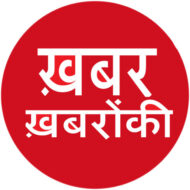
Brazil to Offer India Ethanol Technology to Resolve Ongoing Sugar Dispute: Report
Ira Singh
20 Sep’23
In a significant development aimed at resolving the ongoing sugar dispute between Brazil and India, Brazilian authorities have reportedly offered to share advanced ethanol technology with India.Brazil has offered to share its ethanol manufacturing technology with India, in an attempt to put an end to their long-running disagreements over the sugar industry, the Financial Express reported on Monday.
A ministerial conference and several rounds of formal negotiations between the two parties led to the development.
The offer on ethanol technology might be the deciding factor because India wants to proceed quickly with the use of biofuels for stand-alone usage in transportation as well as for blending with petroleum fuels, according to report.
“Brazil is saying they will share with us technology for ethanol production. It is a positive thing. We should be able to get a good outcome (in talks),” the Financial Express quoted an anonymous official as saying. But the representative withheld information on the Indian proposal during the negotiations.
Brazil is a major manufacturer of ethanol and sugarcane. It has attained a 25 per cent level and is a leader in gasoline with ethanol added. In Brazil, a sizable market for flex-fuel vehicles that can run on either gasoline or ethanol has now been cornered, making up 83 per cent of sales of new light vehicles in 2022, according to information.
By FY 26, India wants to increase the current 10 per cent ethanol blend to 20 per cent. Diesel and ethanol blends are also being tested. Additionally, it is the Global Alliance’s proposer and coordinator, which was established on its idea during the G-20 Summit on September 9. Along with the presidents of the US, Brazil, Argentina, Italy, Singapore, the United Arab Emirates, Mauritius, and Bangladesh, Prime Minister Narendra Modi had launched it, according to recent reports.
All major manufacturers currently provide vehicles with flex fuel engines, and late last month Roads and Highways Minister Nitin Gadkari unveiled the first electric flex-fuel vehicle produced in India by Toyota.
The Indian government is pushing ethanol in order to increase farm revenue in addition to lowering the cost of importing crude oil for transportation and aiding in the decarbonisation of transportation. Some sources claim that sugarcane farmers’ incomes could increase by 15 per cent as a result of ethanol. Sugar price increases are not under much pressure since farmers are earning more money from ethanol. Additionally, it increases the cash flow and profitability of sugarcane processors.
Given that it involves two of the biggest sugar producers in the world, the India-Brazil sugar dispute is critical. The resolution of the conflict could have a significant effect on the world sugar market.
The India-Brazil sugar dispute began in 2005 when India complained to the World Trade Organization (WTO) about Brazil’s sugar subsidies, claiming that they were affecting Indian sugar farmers and causing the global sugar market to become distorted. Brazil had to cut back on its sugar subsidies after the WTO decided in favour of India.
Despite this, the conflict has persisted, with India and Brazil trading charges of breaking WTO regulations. Brazil contested India’s support programmes for sugarcane farmers and sugar export subsidies in 2019. Brazil said that these actions were against the WTO’s Agriculture Agreement (AoA).
In response to a complaint from Brazil, the WTO’s Dispute Settlement Panel stated in a report distributed to members in December 2021 that India’s support for sugarcane producers between 2014–15 and 2018–19 exceeded the permissible amount of 10 per cent of the total value of production, in violation of AoA provisions. Costa Rica and Guatemala later asked to join the dispute. Other nations participated in the dispute as third parties.
The panel’s decision has been contested by India, but as the WTO’s Appellate Body is now inactive, efforts have been made to resolve the dispute bilaterally, according to report.
The sugar trade dispute between the two major sugar-producing nations has been ongoing for several years, primarily due to issues related to sugar subsidies and export policies. However, the introduction of ethanol technology into the discussion marks a potentially innovative solution that could not only ease trade tensions but also promote sustainable development.
